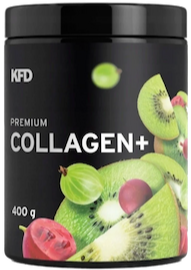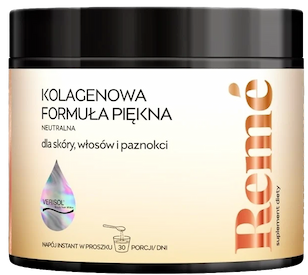Best collagen for scars (acne, post-operative, and wounds)
When used as a dietary supplement, collagen promotes wound healing, improves skin condition and affects scars.


Learn more about our editorial process
.

Learn more about our editorial process
.

Learn more about our editorial process
.

Learn more about our editorial process
.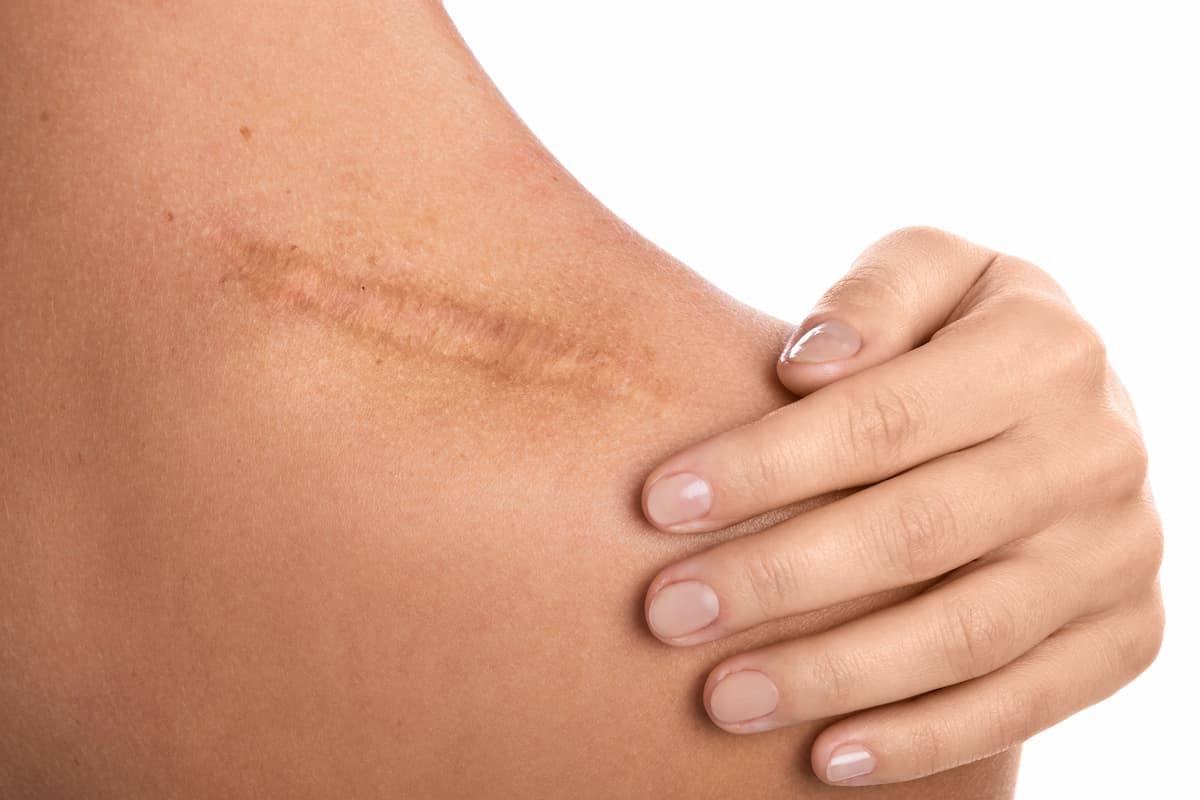
Why you can trust us
Articles on Natu.Care are written based on scientific research, data from government websites and other reliable sources. The texts are written in cooperation with doctors, nutritionists and other health and beauty experts. Articles are reviewed before publication and during significant updates.
.Learn more about our editorial process
.Information about advertisements
Content on Natu.Care may contain links to products from the sale of which we may receive a commission. When creating content, we adhere to high editorial standards and take care to be objective about the products discussed. The presence of affiliate links is not dictated by our partners, and we select the products we review ourselves completely independently.
.Learn more about our terms and Conditions
.I have more than a dozen scars. After surgeries, MTB outings and even from stupidity (don't ask). Every scar I have is a story - just like yours. C-section, accident, acne, surgery. On the face, on the leg, on the back... Scars hurt - often more mentally than physically.
.
If you start working with your scar early enough, you can minimise its visibility and the pain associated with it. Collagen is helpful in this whole process, but applied at the right time and in the right form. Together with the experts, we will tell you when to take it and what type of collagen is best for scars.
From this article you will learn:
- What a scar is and how it is formed. .
- Whether and how collagen affects scars. .
- How to effectively use collagen on scars.
- How to use collagen on scars.
- How to deal with scars at an advanced stage. .
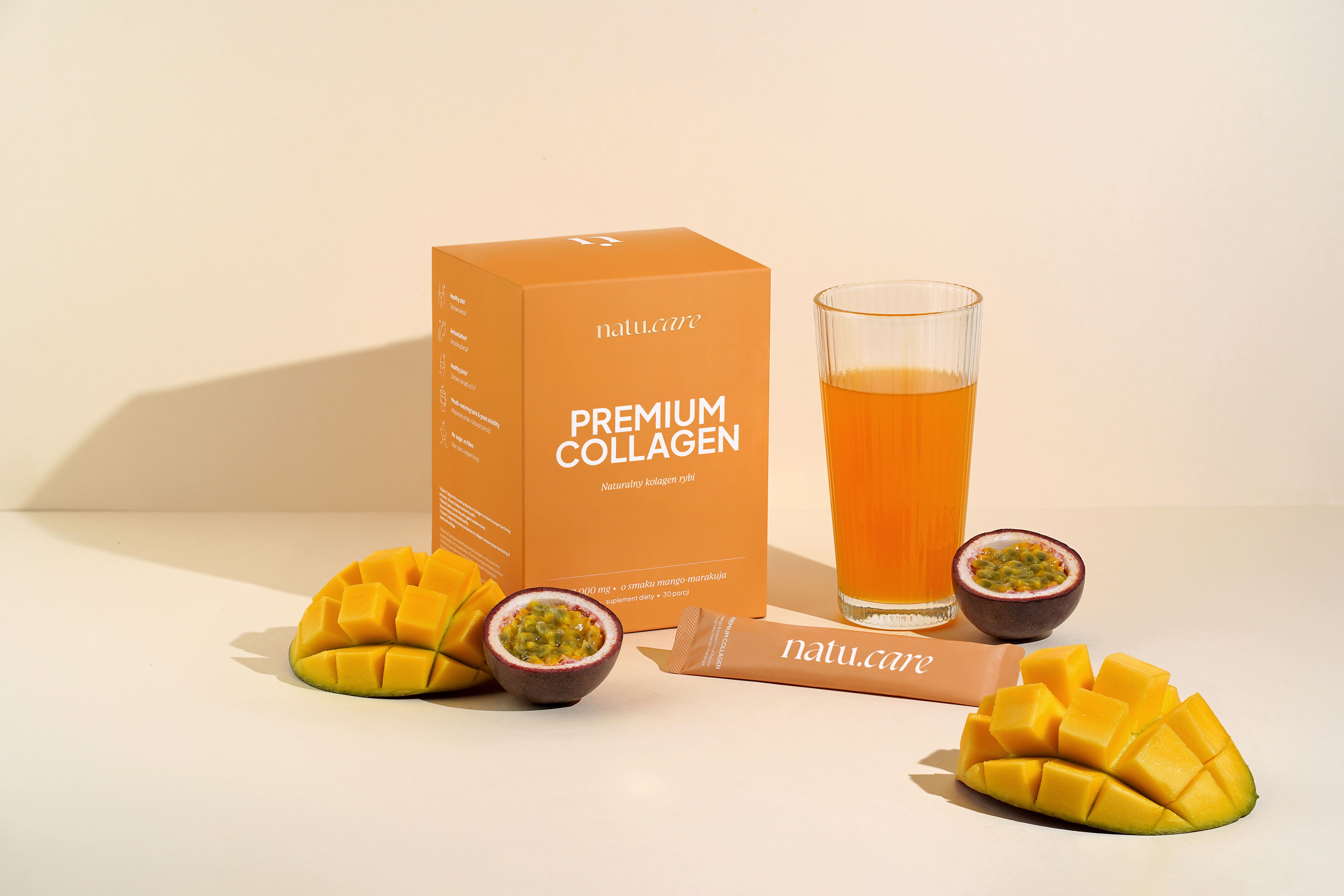
Sprawdź, za co pokochały go tysiące klientek Kolagen Premium 10000 mg, mango-marakuja
Natu.Care Kolagen Premium 10000 mg, mango-marakuja
Natu.Care Kolagen Premium dla zdrowia stawów, skóry, paznokci i włosów. Najlepsza przyswajalność. Optymalna dawka 5 000 lub 10 000 mg. Przebadany przez niezależne laboratorium.
Zobacz więcej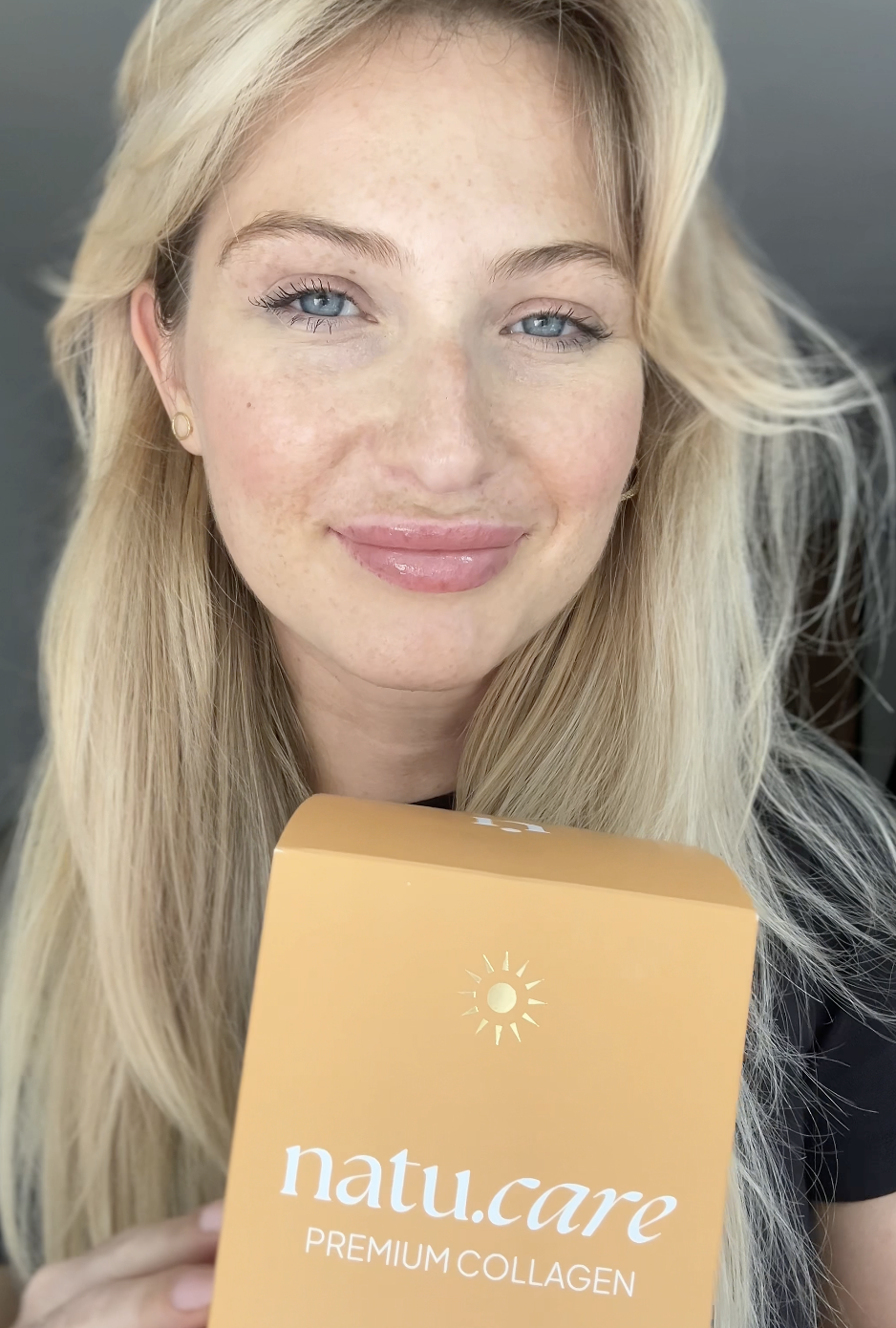
Wybrałam kolagen Natu.Care, ponieważ miał super opinie – a to było dla mnie bardzo ważne! Odkąd go stosuję, moja skóra znacznie się poprawiła i jest nawilżona, a na głowie pojawiły się nowe "baby hair".@Kasia S.
See also:
.
- Most powerful collagen
- Collagen for wrinkles
- Collagen for skin
- Facial collagen
- Collagen for joints
- Hair collagen
- Collagen for nails
- Collagen for acne
- Collagen for cellulite
- Collagen for stretch marks
Remember that applying collagen to scars alone will not make them disappear 100%. It is important to take a comprehensive approach - starting supplementation early, caring for the scar as it heals, and physiotherapy and cosmetic treatments. This can prevent adhesions and minimise the visibility of the scar.
Does collagen help with scars?
.
Yes, collagen helps with scars because it strengthens the dermis layer and makes it thicker and more elastic, which helps to stretch scarsand. This helps to make them less visible. Collagen is also involved in the skin's healing process - after all, it accounts for more than 80% of the skin's dry mass, which needs to regenerate .
However, there is a catch - it is collagen in dietary supplements, not in cosmetics. Collagen applied to the skin does not work. This is confirmed by scientific studiesand. You've just saved some money - spend it wisely. On a different kind of collagen - an effective one.
Collagen in ointments and creams only has a superficial effect due to its relatively large molecule unable to penetrate the skin barrier. Topically, it can give a moisturising and elasticising sensation, but there is no chance of replenishing the collagen deficiency through external preparations..
 .
.
Katarzyna SrebrCosmetologist
Ok, there's a second catch - it's about when you start using collagen. Some of my scars are full-years-old and I know that from drinking collagen their appearance won't change. But since I've been supplementing with collagen, my wounds are healing faster, nicer and less visible.
In short, prevention and taking care of your skin condition are key. Why not start today?
.
Best collagen for scars - top 10 ranking
.
Collagen looks after your skin from the inside out to keep it supple, firm and healthy. It's worth considering supplementation after the age of 25, when the body's internal collagen production starts to declineand. Collagen can assist in the wound healing process and, along with the right cosmetics and treatments, can minimise the visibility of a scar.
Selection criteria
.
Number of products analysed: 69.Number of finalists: 12.
Products in the list are assessed for:
.
- .
- Collagen content. Scientific research indicates that an effective daily serving of collagen to improve skin condition is a minimum of 2.5gand. .
- Origin of collagen. The best quality is collagen from wild fish. .
- Purity of composition. Unnecessary flavours, preservatives and fillers? Thank you.
- Additional active ingredients. Certain vitamins and minerals support the production and absorption of collagen. .
- Research. The quality of the formulation should be confirmed by testing by an independent laboratory.
- Form of administration. Drinkable collagen is the most effective. Importantly - you won't find collagen creams that won't reduce scars (I'll explain why later). Here you'll see the full criteria. .
Natu.Care Collagen Premium 5000 mg, mango-maracuja

- Collagen content: 5000 mg marine collagen hydrolysate
- .
- Additional active ingredients: vitamin C, low molecular weight hyaluronic acid (and L-theanine and coenzyme Q10 in cocoa flavoured collagen or vitamin A and vitamin E in mango–passion fruit flavoured collagen)
- .
- Form: powder sachets
- .
- Dose: 1 sachet per day
- .
- Sufficient for: 30 days
- .
Product description
Fish collagen from the Natu.Care brand in a dose of 5000 mg. The formula contains a sufficient portion of the active substance to positively affect your joints, musculoskeletal system and immunity.
Take care of your tendons, joint cartilage, ligaments, muscles and even bones by supplying them with the building blocks to function properly. Move without bólu and provide the necessary support for any physical activity.
And as a „gratis” to regular supplementation, you will also receive firm skinóhand, healthy and shiny hair and strong nails.
Natu.Care Premium Collagen is available in two flavours – Cacao Bloom and Rise&Shine. Both formulas are based on the following active ingredients: marine collagen hydrolysate, wild roseóbud extract and hyaluronic acid.
Additionally, Cacao Bloom contains natural L-theanine, coenzyme Q10 and defatted Dutch cacao. Rise&Shine instead contains vitamin E and vitamin A.
These are the best collagens in the world.
These best fish collagens on the market also rós taste – Cacao Bloom is a treat for chocolate lovers. Rise&Shine will appeal to those whoóenjoy the refreshing taste of mangoófruit and passion fruit.
Pros and cons
Fish collagen from the Natu.Care brand in a dose of 5000 mg. The formula contains a sufficient portion of the active substance to positively affect your joints, musculoskeletal system and immunity.
Take care of your tendons, joint cartilage, ligaments, muscles and even bones by supplying them with the building blocks to function properly. Move without bólu and provide the necessary support for any physical activity.
And as a „gratis” to regular supplementation, you will also receive firm skinóhand, healthy and shiny hair and strong nails.
Natu.Care Premium Collagen is available in two flavours – Cacao Bloom and Rise&Shine. Both formulas are based on the following active ingredients: marine collagen hydrolysate, wild roseóbud extract and hyaluronic acid.
Additionally, Cacao Bloom contains natural L-theanine, coenzyme Q10 and defatted Dutch cacao. Rise&Shine instead contains vitamin E and vitamin A.
These are the best collagens in the world.
These best fish collagens on the market also rós taste – Cacao Bloom is a treat for chocolate lovers. Rise&Shine will appeal to those whoóenjoy the refreshing taste of mangoófruit and passion fruit.
Additional information
Fish collagen from the Natu.Care brand in a dose of 5000 mg. The formula contains a sufficient portion of the active substance to positively affect your joints, musculoskeletal system and immunity.
Take care of your tendons, joint cartilage, ligaments, muscles and even bones by supplying them with the building blocks to function properly. Move without bólu and provide the necessary support for any physical activity.
And as a „gratis” to regular supplementation, you will also receive firm skinóhand, healthy and shiny hair and strong nails.
Natu.Care Premium Collagen is available in two flavours – Cacao Bloom and Rise&Shine. Both formulas are based on the following active ingredients: marine collagen hydrolysate, wild roseóbud extract and hyaluronic acid.
Additionally, Cacao Bloom contains natural L-theanine, coenzyme Q10 and defatted Dutch cacao. Rise&Shine instead contains vitamin E and vitamin A.
These are the best collagens in the world.
These best fish collagens on the market also rós taste – Cacao Bloom is a treat for chocolate lovers. Rise&Shine will appeal to those whoóenjoy the refreshing taste of mangoófruit and passion fruit.
User review
Fish collagen from the Natu.Care brand in a dose of 5000 mg. The formula contains a sufficient portion of the active substance to positively affect your joints, musculoskeletal system and immunity.
Take care of your tendons, joint cartilage, ligaments, muscles and even bones by supplying them with the building blocks to function properly. Move without bólu and provide the necessary support for any physical activity.
And as a „gratis” to regular supplementation, you will also receive firm skinóhand, healthy and shiny hair and strong nails.
Natu.Care Premium Collagen is available in two flavours – Cacao Bloom and Rise&Shine. Both formulas are based on the following active ingredients: marine collagen hydrolysate, wild roseóbud extract and hyaluronic acid.
Additionally, Cacao Bloom contains natural L-theanine, coenzyme Q10 and defatted Dutch cacao. Rise&Shine instead contains vitamin E and vitamin A.
These are the best collagens in the world.
These best fish collagens on the market also rós taste – Cacao Bloom is a treat for chocolate lovers. Rise&Shine will appeal to those whoóenjoy the refreshing taste of mangoófruit and passion fruit.
Natu.Care Collagen Premium 10000 mg, cherry

- Collagen content: 10,000 mg of hydrolyzed bovine collagen
- Additional active ingredients: vitamin C, low molecular weight hyaluronic acid, glucosamine, chondroitin, extract of Indian frankincense resin (boswellia serrata)
- Form: powder sachets for drinking
- Serving: 1 sachet per day
- Lasts for: 30 days
Product description
One of the strongest collagens on the market, providing as much as 10,000 mg per daily serving. This product can effectively support the condition of joints, skin, hair, and nails.
With this supplement, you will support your skeletal and joint system as well as your beauty, helping you visually halt the aging process and feel rejuvenated!
Pros and cons
Pros:
- The daily portion of collagen is very large – as much as 10,000 mg.
- Proven collagen formula – COLLinstant, whose effectiveness has been confirmed in clinical studies.
- Effective dose of hyaluronic acid, which additionally moisturizes the skin and positively affects joint health.
- Vitamin C supports the body's natural collagen production.
- Glucosamine is a fundamental building block of compounds found in joint cartilage and a component of collagen that gives elasticity to connective tissue in tendons.
- Chondroitin is a natural component found in the human body, mainly in cartilage. This large molecule (mucopolysaccharide) has the ability to absorb water, which helps maintain the elasticity and resilience of cartilage.
- Frankincense resin extract supports blood circulation and joint mobility and reduces their stiffness. It may help alleviate inflammatory conditions.
- The composition has been tested by the independent and accredited J.S. Hamilton laboratory.
Cons:
- None.
Additional information
Users praise Natu.Care Collagen Premium for the easy dissolving of the powder.
ALLDEYNN Collarose Fish
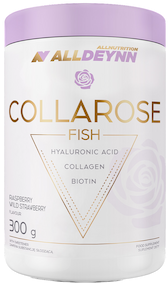
- Collagen content: 5000 mg hydrolysate fish collagen VERISOL F® .
- Additional active ingredients: vitamin C, hyaluronic acid, biotin
- Form: powder to dissolve in water .
- Dose: one scoop (6 g) of powder daily .
- Sufficient for: 50 days .
Product description
Atlantic cod collagen VERISOL F® contained in the formula are easily absorbed collagen peptides of fish origin. Regular supplementation can firm your skinóhand and slow down the ageing process. Your nails will become stronger and stop breaking. The addition of biotin will improve the condition of your hairów. The collagen portion is high enough to also have a good effect on your joints, muscles and bones.
Pros and cons
Atlantic cod collagen VERISOL F® contained in the formula are easily absorbed collagen peptides of fish origin. Regular supplementation can firm your skinóhand and slow down the ageing process. Your nails will become stronger and stop breaking. The addition of biotin will improve the condition of your hairów. The collagen portion is high enough to also have a good effect on your joints, muscles and bones.
Additional information
Atlantic cod collagen VERISOL F® contained in the formula are easily absorbed collagen peptides of fish origin. Regular supplementation can firm your skinóhand and slow down the ageing process. Your nails will become stronger and stop breaking. The addition of biotin will improve the condition of your hairów. The collagen portion is high enough to also have a good effect on your joints, muscles and bones.
Expert and user opinion
Atlantic cod collagen VERISOL F® contained in the formula are easily absorbed collagen peptides of fish origin. Regular supplementation can firm your skinóhand and slow down the ageing process. Your nails will become stronger and stop breaking. The addition of biotin will improve the condition of your hairów. The collagen portion is high enough to also have a good effect on your joints, muscles and bones.
DuoLife Collagen fish collagen 2500 mg
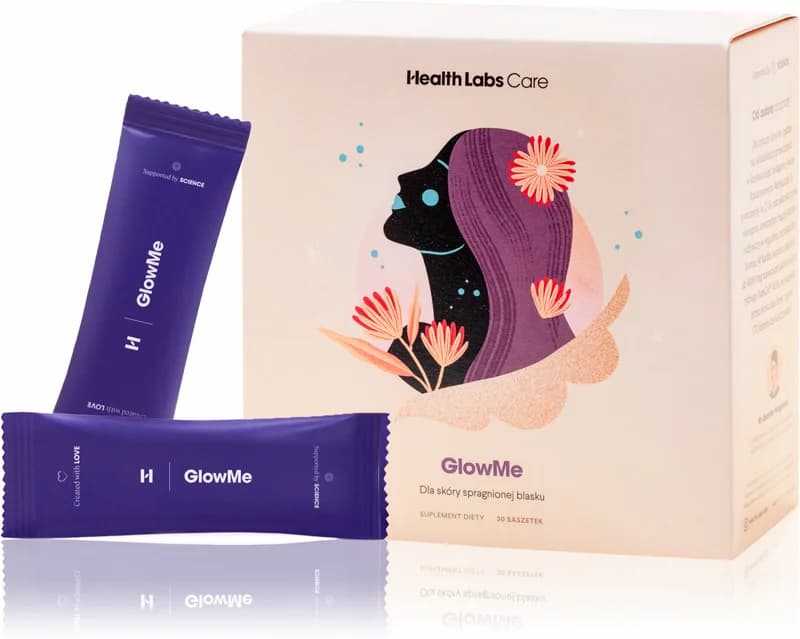
- Collagen content: 2500 mg collagen
- Additional active ingredients: vitamin C, silicon, glucosamine, hyaluronic acid, nettle and bamboo extracts
- Form: liquid to drink .
- Dose:25 ml .
- Sufficient for: 30 days .
Product description
100% natural collagen liquid without unnecessary ingredientsós. The composition of ingredientsós improves the appearance and condition of skinóry, hairów, nails. DuoLife is a good choiceór if you notice the first signs of skinóry ageing or want to stop this process. A tasty liquid, convenient to use.
Pros and cons
100% natural collagen liquid without unnecessary ingredientsós. The composition of ingredientsós improves the appearance and condition of skinóry, hairów, nails. DuoLife is a good choiceór if you notice the first signs of skinóry ageing or want to stop this process. A tasty liquid, convenient to use.
Additional information
100% natural collagen liquid without unnecessary ingredientsós. The composition of ingredientsós improves the appearance and condition of skinóry, hairów, nails. DuoLife is a good choiceór if you notice the first signs of skinóry ageing or want to stop this process. A tasty liquid, convenient to use.
User review
100% natural collagen liquid without unnecessary ingredientsós. The composition of ingredientsós improves the appearance and condition of skinóry, hairów, nails. DuoLife is a good choiceór if you notice the first signs of skinóry ageing or want to stop this process. A tasty liquid, convenient to use.
Pharmovit liquid collagen 10000 mg
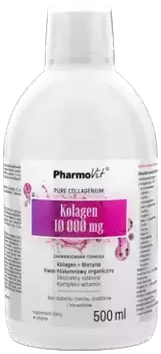
- Collagen content: 10000 mg hydrolysed bovine collagen types I and III .
- Additional active ingredients: hyaluronic acid, natural plant extracts, vitamin C, B vitamins, zinc, vitamin D
- Form: vials .
- Dose: 25 ml .
- Sufficient for: 20 days .
Product description
A solid daily dose of collagen for jointómuscle and bone health and beauty. The duo of collagen and vitamin C has a positive effect on each other, so that „the protein of youth” is better absorbed and more efficiently produced in the body.
Pros and cons
A solid daily dose of collagen for jointómuscle and bone health and beauty. The duo of collagen and vitamin C has a positive effect on each other, so that „the protein of youth” is better absorbed and more efficiently produced in the body.
Additional information
A solid daily dose of collagen for jointómuscle and bone health and beauty. The duo of collagen and vitamin C has a positive effect on each other, so that „the protein of youth” is better absorbed and more efficiently produced in the body.
KFD Premium Collagen+
Product description
High dose of collagen and a real bomb of vitamins C and D and organic sulphur. With this preparation the effects will come immediately. You will improve the firmness of your skin and reduce wrinkles. Your hair and nails will be strong and shiny.
A generous dose of collagen will improve the mobility of your jointsós, benefit your bone system and muscles. Do you do sports and need a product thatós able to keep up with your needs? This product will do the trick.
Pros and cons
High dose of collagen and a real bomb of vitamins C and D and organic sulphur. With this preparation the effects will come immediately. You will improve the firmness of your skin and reduce wrinkles. Your hair and nails will be strong and shiny.
A generous dose of collagen will improve the mobility of your jointsós, benefit your bone system and muscles. Do you do sports and need a product thatós able to keep up with your needs? This product will do the trick.
Additional information
High dose of collagen and a real bomb of vitamins C and D and organic sulphur. With this preparation the effects will come immediately. You will improve the firmness of your skin and reduce wrinkles. Your hair and nails will be strong and shiny.
A generous dose of collagen will improve the mobility of your jointsós, benefit your bone system and muscles. Do you do sports and need a product thatós able to keep up with your needs? This product will do the trick.
Expert opinion
High dose of collagen and a real bomb of vitamins C and D and organic sulphur. With this preparation the effects will come immediately. You will improve the firmness of your skin and reduce wrinkles. Your hair and nails will be strong and shiny.
A generous dose of collagen will improve the mobility of your jointsós, benefit your bone system and muscles. Do you do sports and need a product thatós able to keep up with your needs? This product will do the trick.
Product description
The dietary supplement from Remé contains beef collagen in a patented formula and vitamin C, whichóra aids its absorption. The formula comes in three flavours: neutral, orange-maracuja and strawberry-pomegranate. The formula can effectively support and improve the condition of the skinóry, hairóry and nails.
Pros and cons
The dietary supplement from Remé contains beef collagen in a patented formula and vitamin C, whichóra aids its absorption. The formula comes in three flavours: neutral, orange-maracuja and strawberry-pomegranate. The formula can effectively support and improve the condition of the skinóry, hairóry and nails.
Additional information
The dietary supplement from Remé contains beef collagen in a patented formula and vitamin C, whichóra aids its absorption. The formula comes in three flavours: neutral, orange-maracuja and strawberry-pomegranate. The formula can effectively support and improve the condition of the skinóry, hairóry and nails.
The dietary supplement from Remé contains beef collagen in a patented formula and vitamin C, whichóra aids its absorption. The formula comes in three flavours: neutral, orange-maracuja and strawberry-pomegranate. The formula can effectively support and improve the condition of the skinóry, hairóry and nails.
{ product:7wbbYMdFBNShPpKryvr8wR }}
{ product:5ffmXFKi7KCedRrA51yr3p }}
See also:
.
- Drinking collagen .
- Collagen powder
- Liquid collagen
- Fish collagen for drinking
- Fish collagen powder
- Collagen shot
- Collagen in sachets
- Collagen in tablets
- Collagen in capsules
- Hyaluronic acid collagen
- Collagen with vitamin C
And where are ... collagen creams for scars?
.
We do not include collagen for scars in the form of creams or ointments, as these will not work. The collagen molecule is too large in relation to the opening in your skin - the collagen will not cut through, will not reach the deeper layers of the skin and will not have an effect. The cream will only leave a pleasant layer on the skin - nothing more.
In the first few months of a scar, preparations based on silicone, propolis, allantoin or natural extracts will be helpful..
 .
.
Katarzyna SrebrCosmetologist
"The effect of such ointments comes down to moisturising and making the scar more elastic, as well as accelerating the regenerative processes," adds the cosmetologist.
.
What is a scar?
.
A scar is an area of fibrous tissue that forms as a result of the healing process of the skin or other organs after injury, infection or surgeryand. It is the body's natural way of rebuilding damaged skin tissue. The dermis is replaced by fibrous connective tissue.
During the healing process, collagen is synthesised -a protein that provides strength and elasticity to connective tissueand. The body secretes collagen into the area of damaged skin, creating a new, strong structure to replace the injured tissue.
The skin can take several days to several months to heal. Eventually, a scar appears in place of the former wound, with a different texture and colour to the surrounding skinand.
What does a scar look like?
.
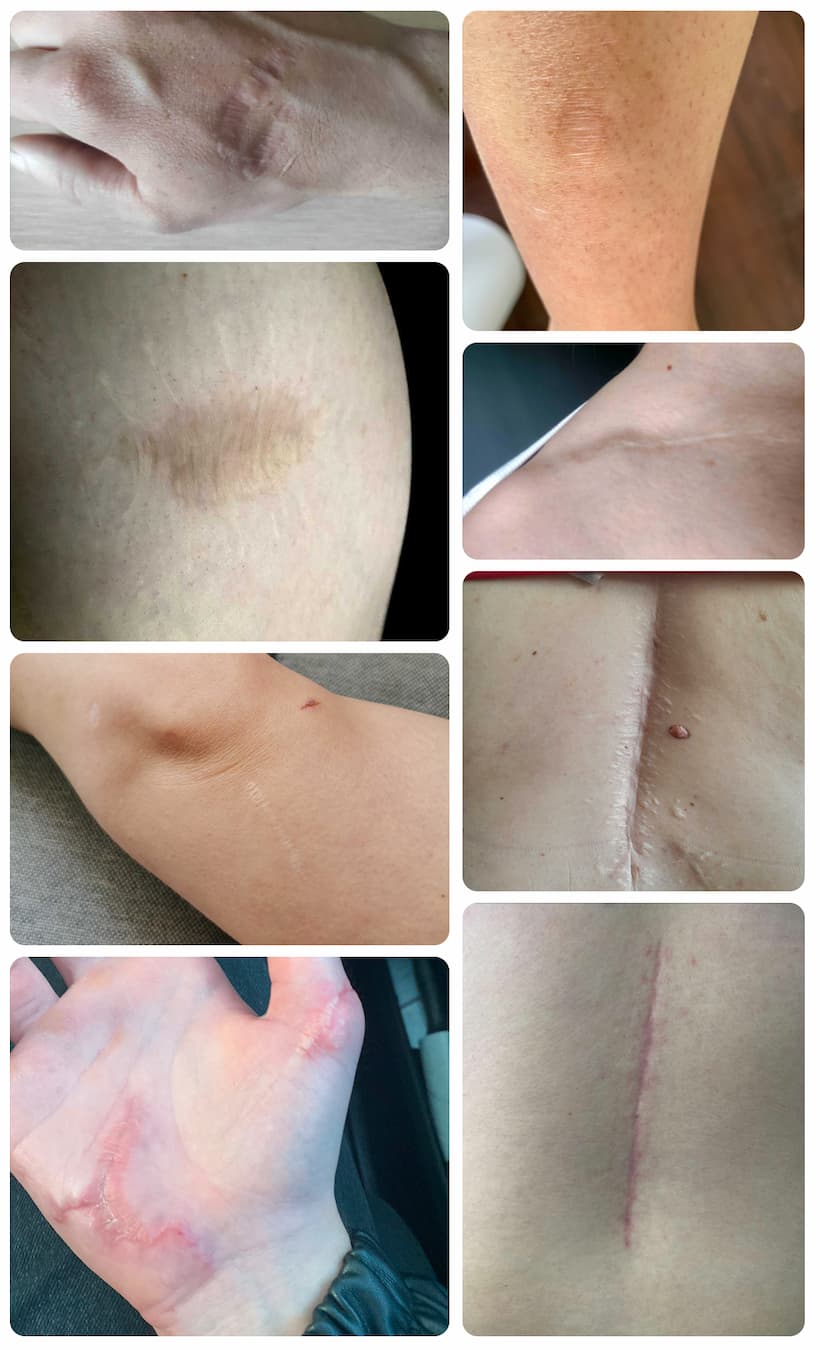
.
Types of scars
.
There are different types of scars, such as atrophic scars, hypertrophic scars, keloid scars or hyperpigmented scarsand. They vary in texture and appearance depending on the cause, healing process and individual patient characteristicsand.
Scar treatment can include specialised creams, ointments, laser treatments, microneedling, chemical peels or surgery. It all depends on the type of scar, the timing and the condition of the patient..
 .
.
Witold Tomaszewskidoctor of medical sciences
.Are scars dangerous?
.
Yes, scars can be dangerous to health, but this applies to so-called hypertrophic scars and keloids. These pathological scars (adhesions) form in deep tissue structures, which can result in painful scar contracturesand.
Scarring as such is not harmful to health. What is harmful is scar tissue (keloid), which, in addition to being a cosmetic defect, can lead to many complications. Combating it is difficult. It is a genetic affliction - it mainly affects the black and yellow race, although it also occurs in the Caucasian race..
 .
.
Witold Tomaszewskidoctor of medical sciences
What is the best collagen for scars?
.
The best collagen for scars is fish collagen hydrolysate in a daily dose of at least 2,500 mg. This form of collagen, according to scientific research, is the fastest and most efficiently absorbed into the body. Fish collagen for drinking has a higher bioavailability than, for example, capsules and typically higher doses per daily servingand.
.
The secret to healthy skin lies in its dermis. The right amount of collagen and elastin keeps it tight, hydrated and heals faster. You can buy the best scar cream (and the most expensive one, by the way) or do hours of compresses, but it won't be as effective as nourishing the skin from within.
Drinking collagen can help with any scars - acne, post-surgical, post-traumatic or post-C-section. However, you must remember that its timely supplementation and other complementary treatments are key.

Sprawdź, za co pokochały go tysiące klientek Kolagen Premium 10000 mg, mango-marakuja
Natu.Care Kolagen Premium 10000 mg, mango-marakuja
Natu.Care Kolagen Premium dla zdrowia stawów, skóry, paznokci i włosów. Najlepsza przyswajalność. Optymalna dawka 5 000 lub 10 000 mg. Przebadany przez niezależne laboratorium.
Zobacz więcej
Wybrałam kolagen Natu.Care, ponieważ miał super opinie – a to było dla mnie bardzo ważne! Odkąd go stosuję, moja skóra znacznie się poprawiła i jest nawilżona, a na głowie pojawiły się nowe "baby hair".@Kasia S.
Collagen for acne scars
.
Acne scars are distinctive, but caring for them is as basic as any scar - proper skin care and nourishment from the inside and out. Working with a dermatologist and cosmetologist, hygiene, appropriate skin preparations, a nourishing diet and patience will bring results.
Drinking high-quality fish collagen or beef collagen supplements this valuable skin protein, which is key to maintaining skin health and proper regeneration. Scientific findings show that collagen can help treat acne scars, which are caused by, among other things, the degradation of collagen fibres in the skin, and these are effectively rebuilt during healing.
Working with atrophic scars (these are the ones most commonly left by acne) is relatively arduous and lengthy - it is much more difficult to 'produce' the missing tissue at the defect site than it is to loosen and flatten a convex scar..
 .
.
Katarzyna SrebrCosmetologist
.
Collagen for surgical scars
.
After surgery, the most important thing to do is to minimise scar formation as early as the wound healing stage. This means that the focus should be on preventing the development of infection, avoiding skin irritation and using special wound dressings.
The scar must be moisturised and lubricated during the healing phase. This speeds up healing and reduces the risk of scarring..
 .
.
Witold Tomaszewskidoctor of medical sciences
.I know from myself - my scars from 15 years ago look different from those acquired five years ago, when I already knew how to take care of them. Proper care makes the scar thinner, less visible and doesn't "pull".
Promote your skin from the inside out - remember to hydrate properly and eat a diet rich in vitamins, minerals and omega-3 fatty acids that affect skin health.
See also:
.
- Collagen diet .
Collagen for caesarean section scars
.
Cesarean section scars require exceptional care and work. The cut skin layers and extremely 'mobile' area are not easy to heal. Collagen supplementation is not recommended during pregnancy, so take care of your skin beforehand and prepare it for the challenges of childbirth.
The visibility of a caesarean section scar can be minimised with the right therapy - both physiotherapy and cosmetology. There are many techniques that can positively affect the appearance of the scar, but it is worthwhile to ensure that the healing process is uninterrupted and that the overall condition of the body is as good as possible..
 .
.
Joanna Szlenda urogynaecological physiotherapist
.
When does it make sense to use collagen on scars?
.
Collagen is the basis of healthy skin. It is worth taking care of its levels in the body after the age of 25, when its internal synthesis in the body begins to decrease. Then the skin will be enriched in collagen and better able to deal with scar healing.
As a rule of thumb, the earlier you start working on your scar, the better, as the first six months are when the scar is most vulnerable..
 .
.
Katarzyna SrebrCosmetologist
Collagen is a cool addition to the whole scar healing process. But what if your scar has already reached full age?"
Other ways to deal with scars
.
You look at your scars and think - "It's too late to do anything about them". Wait - you still have other options. Consider them if your scar is really bothering you.
Treatments with a cosmetologist
.
The most popular and effective treatments that can reduce scars are:
- fractional laser, .
- microneedle (and needle) mesotherapy, .
- carboxytherapy, .
- micro-needle radiofrequency, .
- micropuncture, .
All treatments induce local inflammation, which stimulates cellular metabolism and triggers a cascade of regenerative processes, leading to scar remodelling..
 .
.
Katarzyna SrebrCosmetologist
It is impossible to remove scars 100%, but treatments with a cosmetologist can reduce them somewhat. Below are the results of Catherine Srebr of Trychoderm.
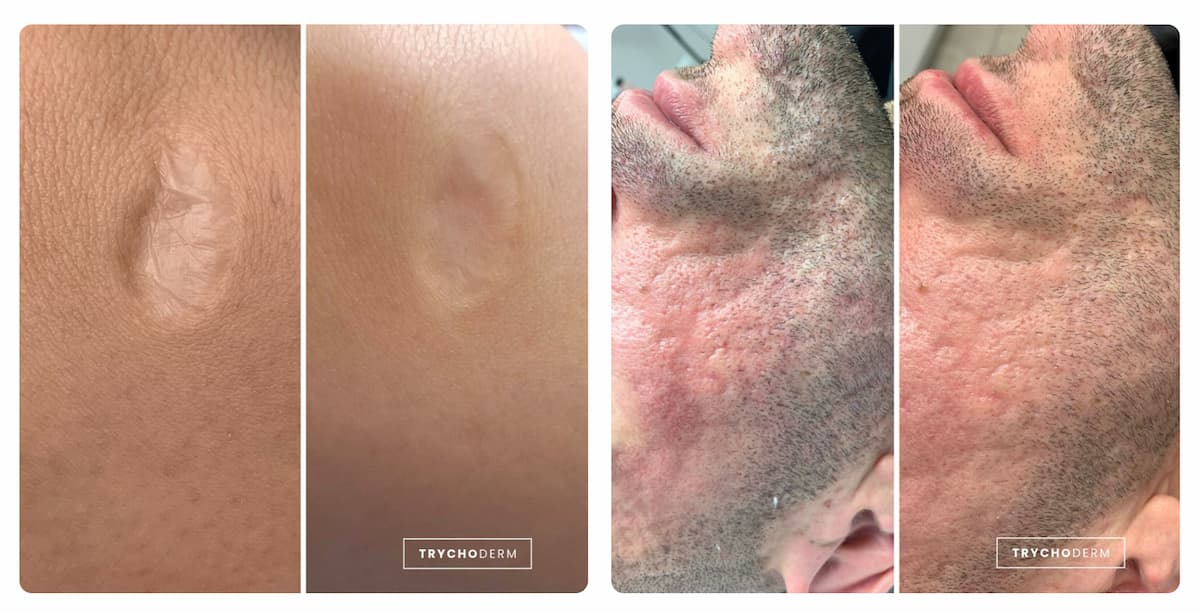
Treatments with a physiotherapist
.
Physiotherapy for scar tissue improves circulation, increases tissue mobility and flexibility, reduces pain and prevents adhesionsand. It is worth considering working with a specialist even on an 'old' scar, which can also be massaged, mobilised and changed in appearance.
It is never too late to work with a scar. In my practice, I successfully provide therapy even decades after the scar has formed. Of course, the earlier we start working, the better. However, there is no limit beyond which we can no longer influence the function of the tissue..

Joanna Szlenda urogynaecological physiotherapist
And maybe... a tattoo?
.
A scar can be covered up with a tattoo and it is safe to do so, but only if this task is handled by an experienced artist with knowledge beyond the creation of the tattoo itself.
Tattooing is not an option.
Before getting a tattoo, you should be absolutely sure that the scar you will be treating is fully healed. This is evidenced by its light colour, elasticity and degree of protrusion.
Before getting a tattoo on a scar, it is crucial to visit a studio, consult with the chosen artist and review a portfolio of this type of work to gain confidence that he or she can handle the commissioned task..
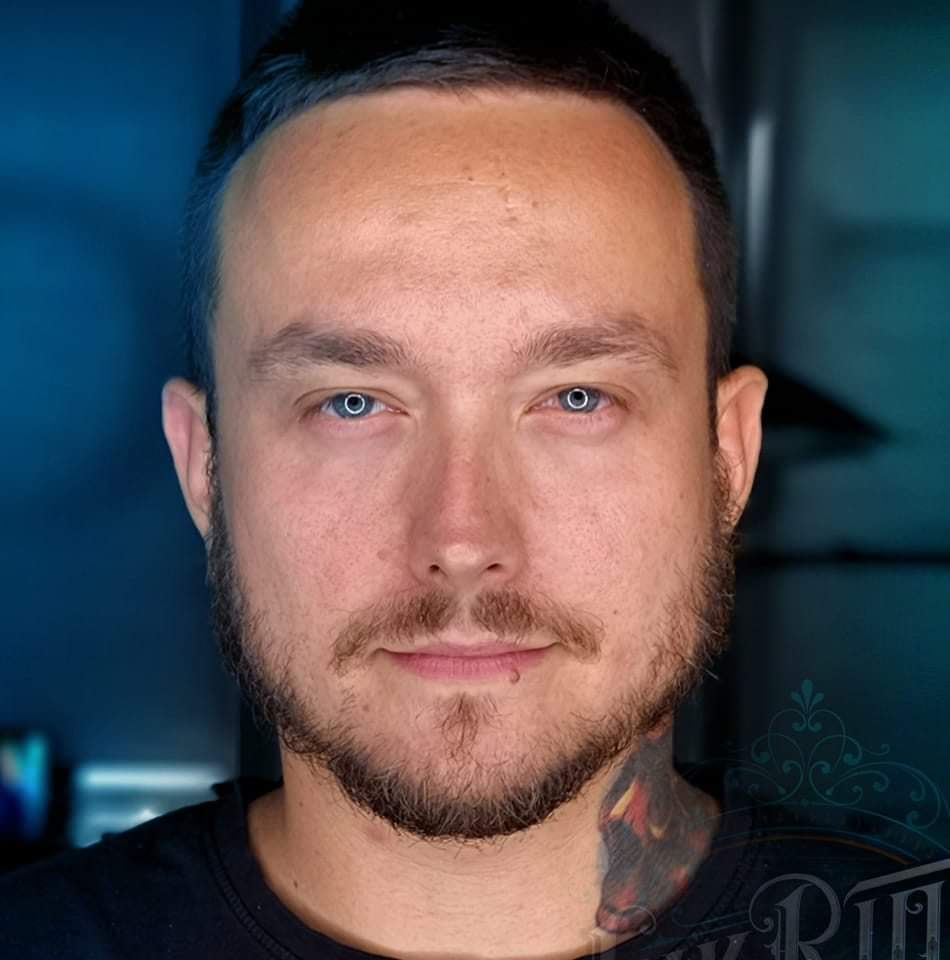 .
.
Mariusz Matustattoo artist Ink Riot Studio
"It's worth remembering that even the most experienced artist is not a dermatologist, so to gain confidence in the safety of your treatment - don't hesitate to seek specialist advice," adds the artist.
Below is the work of Mariusz Matus of Ink Riot Studio - covering scars.
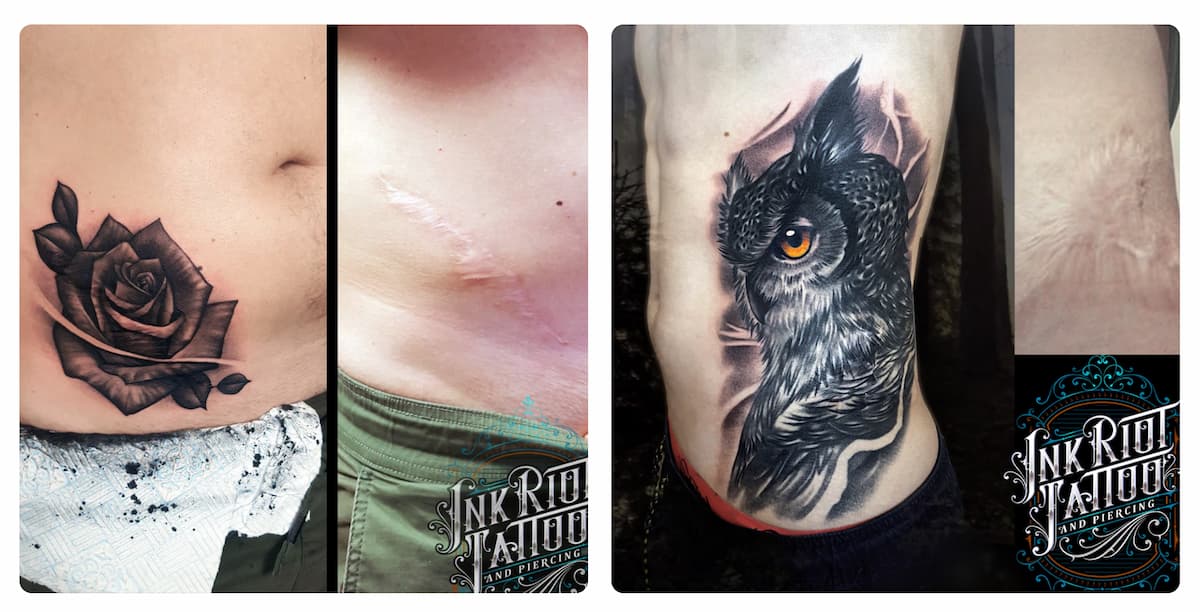
See also:
.
Summary
.
- Collagen is responsible for the condition and appearance of the skin - its correct amount in the body affects its elasticity and tone.
- Collagen accounts for up to 80% of the dry weight of the skin, so the right amount of it affects the healing and appearance of scars.
- The best results for minimising the appearance of scars and supporting their healing come from skin care and physiotherapy treatments, appropriate cosmetics and a skin-nourishing diet.
- You can influence the appearance of a scar at any stage, you just need to choose the treatments appropriately according to your expectations and consult a dermatologist.
FAQ
.Does vitamin C help with scars?
.Yes, vitamin C is helpful in treating scars. Vitamin C is essential for the synthesis of collagen and elastin, both of which are necessary for healthy skin. In addition, vitamin C acts as a natural antioxidant and protects the skin from damage, so it can help reduce the appearance of scars.
Does collagen accelerate wound healing?
.Yes, collagen can accelerate wound healing. Naturally occurring collagen in the body is an important component of connective tissue and acts as a support cell, which helps improve tissue regeneration and the healing process. Hydrolysed collagen used in the form of dietary supplements can help regenerate the skin and increase the production of new cells.
Does honey help with scars?
.Yes, honey can help treat scars. It has properties that promote wound healing, which include stimulated tissue growth, increased epithelial regeneration and minimised scar formation. Topical application of honey in the treatment of burns has been observed to result in a lower incidence of hypertrophic scars and burn contractures.
What is the best ointment for surgical scars?
.Depending on the type of scar and the time that has elapsed since surgery, the doctor can choose different types of creams and ointments to minimise surgical scars accordingly. For example, a silicone-based ointment can help to reduce the visibility of scars from burns and skin wounds. Another option may be an ointment containing allantoin, which, like collagen, promotes regenerative processes and accelerates wound healing.
What vitamins help with scars?
.Valuable vitamins for skin health that help with skin regeneration, the healing process and healthy skin are vitamin C, vitamin A, vitamin E and vitamin B3 (niacin). These are vitamins present in dietary supplements and cosmetics that are worth supplementing in the diet and applying directly to the skin.
Is collagen good for hyperpigmentation?
.Yes, collagen can help reduce skin discolouration, but some types of discolouration (e.g. hormonal) are resistant to any ingredient, including collagen. Collagen helps in the production of melanin, which protects the skin from harmful UV rays, so it can help improve the appearance of the skin and reduce the appearance of hyperpigmentation.
What to buy at the pharmacy for scars?
.A variety of creams, ointments and gels are available from the pharmacy that can help to minimise the appearance of scars. There are some to choose from:
- silicone-based ointments - reduce the visibility of burns, wounds and surgical scars, .
- allantoin-based creams - promote healing and reduce the visibility of scars, .
- creams with vitamin C, vitamin E or vitamins A + E - can help regenerate skin and reduce the appearance of scars.
What is a keloid?
.A keloid is an abnormally healed scar that occurs as a result of an overproduction of collagen. They are usually larger, thicker and more prominent than other types of scar, and may be redder or darker than the surrounding skin. Keloids are usually difficult to remove, but there are various treatment options, such as surgery or in-office cosmetic surgery.
.
Resources
.See all
.Abdel-Magiud, E. M., Taha, E. A., Bakr, R. M., Ismail, S. A., Sayed, S. K., Makboul, M., Kamel-ElSayed, S., & Abdel Motaleb, A. A. (2020). Effects of different therapeutic modalities for postacne scars on circulating collagen III. Journal of Cosmetic Dermatology, 19(6), 1517-1521. https://doi.org/10.1111/jocd.13184
Aguirre-Cruz, G., León-López, A., Cruz-Gómez, V., Jiménez-Alvarado, R., & Aguirre-Álvarez, G. (2020). Collagen Hydrolysates for Skin Protection: Oral Administration and Topical Formulation. Antioxidants (Basel, Switzerland), 9(2), 181. https://doi.org/10.3390/antiox9020181
de Miranda, R. B., Weimer, P., & Rossi, R. C.. (2021). Effects of hydrolyzed collagen supplementation on skin aging: A systematic review and meta-analysis. International Journal of Dermatology, 60(12), 1449-1461. https://doi.org/10.1111/ijd.15518
Ekstein, S. F., Wyles, S. P., Moran, S. L., & Meves, A. (2021). Keloids: A review of therapeutic management. International Journal of Dermatology, 60(6), 661-671. https://doi.org/10.1111/ijd.15159
Guadanhim, L. R. S., Miot, H. A., Soares, J. L. M., Silva, S. A. M., Leonardi, G. R., Lopes, R. D., & Bagatin, E. (2023). Efficacy and Safety of Topical or Oral Hydrolyzed Collagen in Women with Dermatoporosis: A Randomized, Double-Blind, Factorial Design Study. Dermatology and Therapy, 13(2), 523-534. https://doi.org/10.1007/s13555-022-00859-y
Munavalli, G. S., Smith, S., Maslowski, J. M., & Weiss, R. A. (2013). Successful Treatment of Depressed, Distensible Acne Scars Using Autologous Fibroblasts: A Multi-Site, Prospective, Double Blind, Placebo-Controlled Clinical Trial. Dermatologic Surgery, 39(8), 1226. https://doi.org/10.1111/dsu.12204
Tseng, S.-H., Tzeng, S.-Y., Liaw, Y.-K., Hsu, C.-K., Lee, J., & Chen, W.-R. (2012). Noninvasive evaluation of collagen and hemoglobin contents and scattering property of in vivo keloid scars and normal skin using diffuse reflectance spectroscopy: A pilot study. Journal of Biomedical Optics, 17(7), 077005. https://doi.org/10.1117/1.JBO.17.7.077005
Varani, J., Dame, M. K., Rittie, L., Fligiel, S. E. G., Kang, S., Fisher, G. J., & Voorhees, J. J. (2006). Decreased Collagen Production in Chronologically Aged Skin. The American Journal of Pathology, 168(6), 1861-1868. https://doi.org/10.2353/ajpath.2006.051302
Verhaegen, P. D. H. M., van Zuijlen, P. P. M., Pennings, N. M., van Marle, J., Niessen, F. B., van der Horst, C. M. A. M., & Middelkoop, E. (2009). Differences in collagen architecture between keloid, hypertrophic scar, normotrophic scar, and normal skin: An objective histopathological analysis. Wound Repair and Regeneration: Official Publication of the Wound Healing Society [and] the European Tissue Repair Society, 17(5), 649-656. https://doi.org/10.1111/j.1524-475X.2009.00533.x
Yuan, B., Upton, Z., Leavesley, D., Fan, C., & Wang, X.-Q. (2023). Vascular and Collagen Target: A Rational Approach to Hypertrophic Scar Management. Advances in Wound Care, 12(1), 38-55. https://doi.org/10.1089/wound.2020.1348
Jelonek, L. (2023). Collagen. Everything you need to know (B. Turczynski, ed.; 1st ed.). Natu.Care. https://books.google.com/books?vid=9788396887801
..
Editorials
Meet the team

Cosmetologist
Cosmetologist and linergist with extensive experience working with clients with a wide range of skin health needs and concerns.

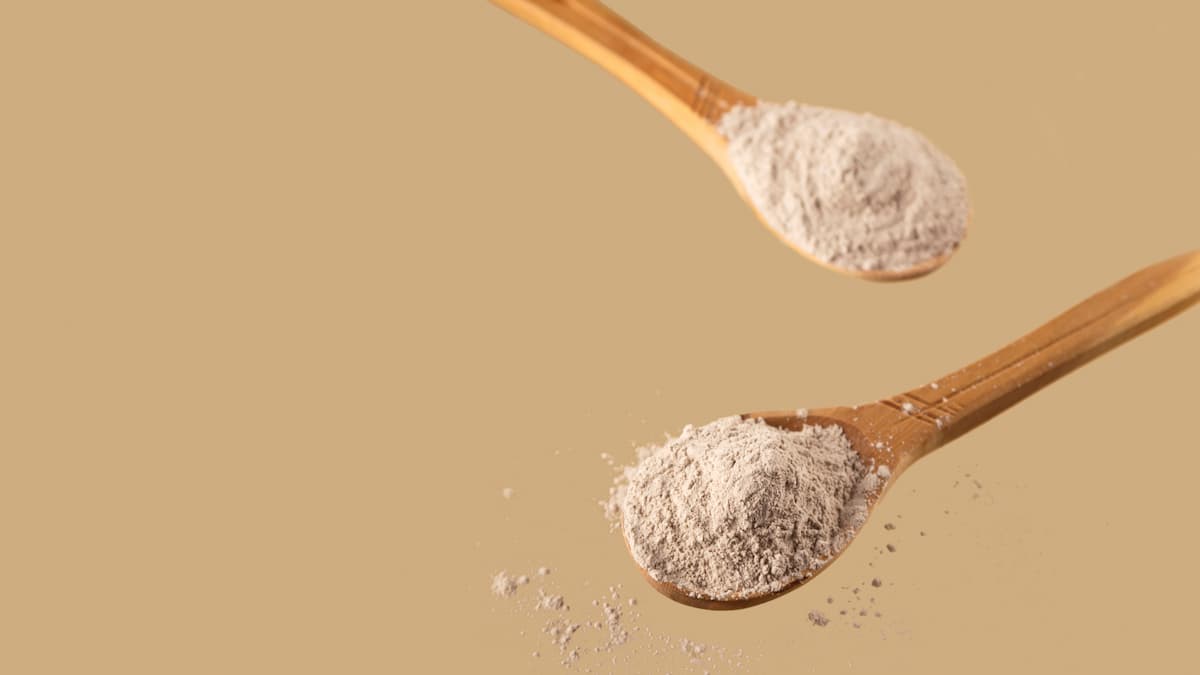
Everything you want to know about COLLinstant collagen.

Collibre collagen is an interesting supplement in shot form.
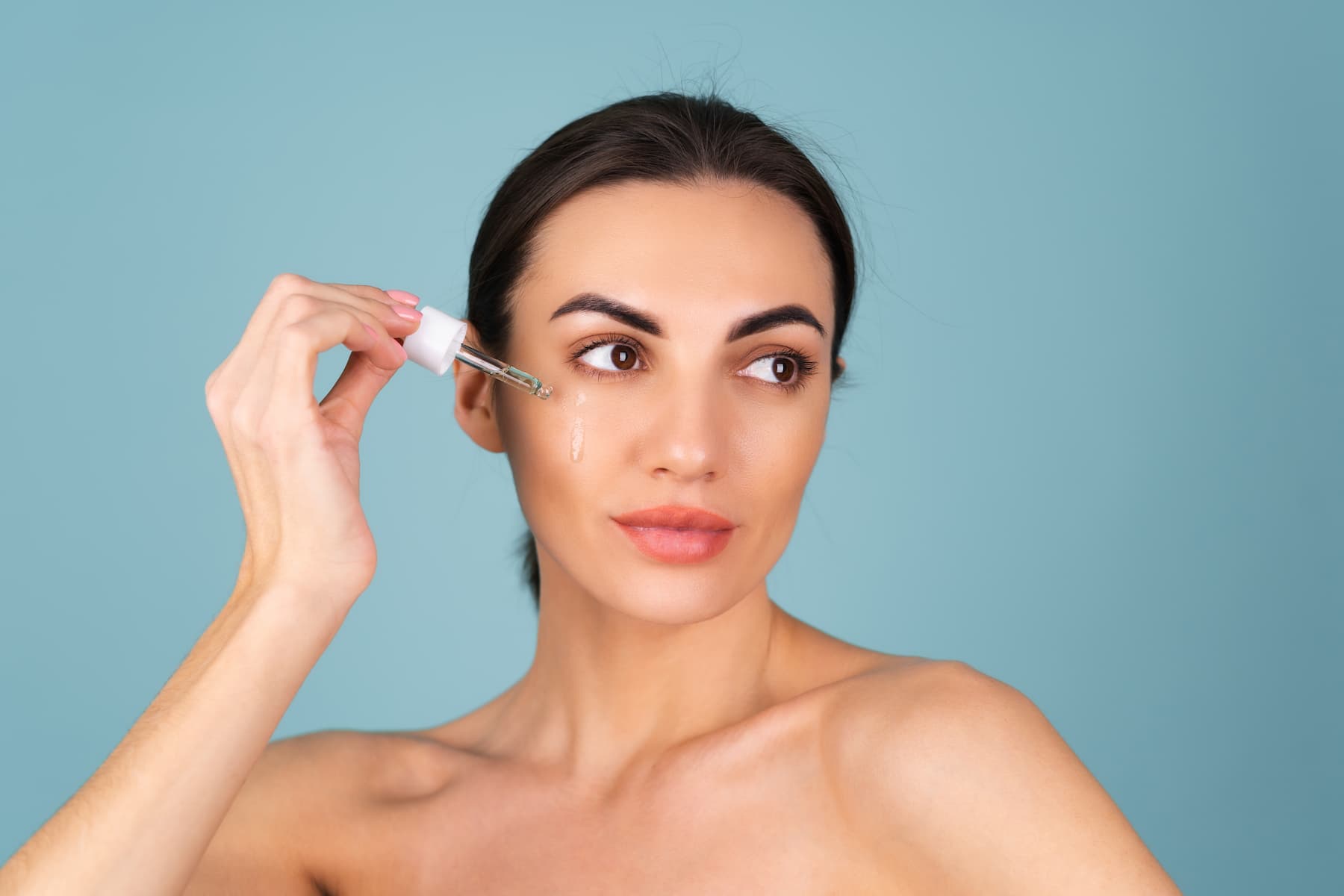
Solgar collagen with hyaluronic acid is a dietary supplement that supports skin and joint health.
